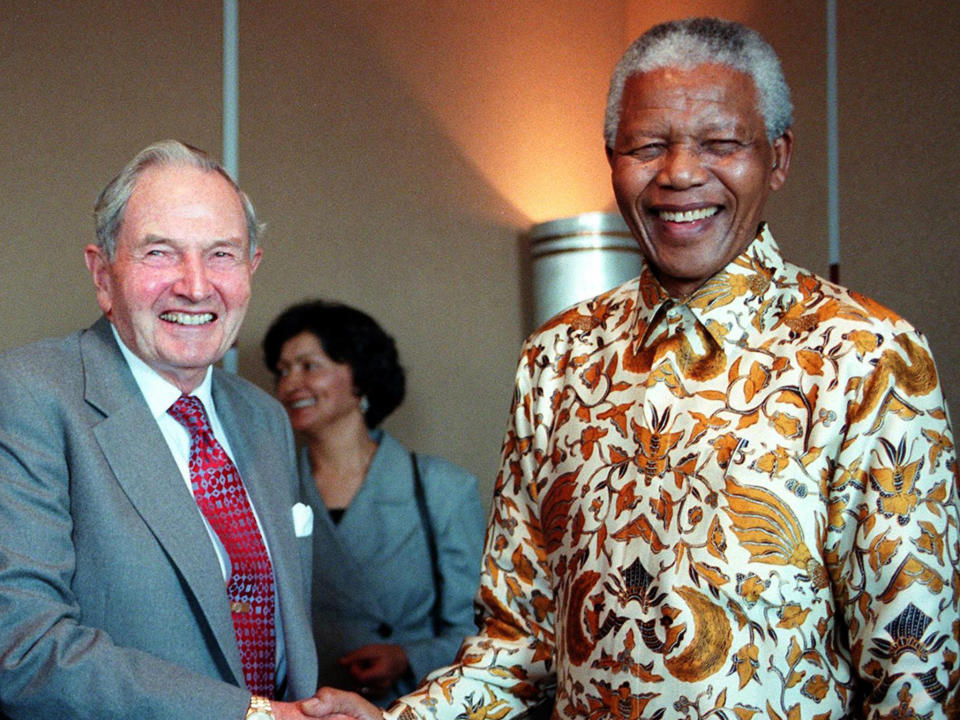Mea Culpa: whom did Rockefeller meet with?

In our excellent obituary of David Rockefeller we wrote: “He could be defined in comparison to Nelson, the elder brother whom he idolised, then fell out with.” This is the correct use of “whom”, but I thought the sentence stylistically inconsistent. Normally, I have no sticklerish objection to ending a sentence with a preposition, but here the contrast between the formal “whom” and the informal “fell out with” made the sense hard to follow. If it had all been written in the same register, it would have been “whom he idolised, and with whom he then fell out”.
The confusion was not helped by the original caption on an accompanying photograph of Rockefeller and Nelson Mandela: “Rockefeller said that Nelson Mandela, who he met with in September 1998, was the man he admired most.” If we are going to use “whom”, we should use it consistently in the same article, in which case there is no place for the American form “meet with”. The caption now reads “whom he met in September 1998”.
Rise to the occasion: In an article looking back at Citizen Smith, the TV series of 40 years ago, we referred in the opening paragraph to a point at which the “music swells to a crescendo”. As John Schluter wrote to point out, the crescendo is the swelling, and the thing it swells to is the climax. Everyone knows what is meant, but it is better not to distract the musically informed reader.
Sleeve-channel: Another of our long reads, on the SS Torrey Canyon oil spill off the Cornish coast 50 years ago, originally referred in the sub-headline to the pollution of “the British channel”. As Geoffrey Peter noted, the usual name is the English Channel, or simply the Channel. It may be Anglocentric – the French call it La Manche and the Germans call it Ärmelkanal, which combines both names – but to give it an unfamiliar name prompted me at least to wonder if we meant the Bristol Channel, which is the bit to the north of Cornwall. I checked and we didn’t.
Cycling sellers: We continue to have trouble with “peddle”, a 16th century back-formation from “pedlar” which means sell (or try to sell) and which is now used only figuratively. Recently we wrote about “peddling fake news” and “peddling falsehoods”, and initially spelled it “pedalling”. This always conjures up for me a vision of a French onion-seller on a bicycle, a comic effect that should probably be avoided.

 Yahoo News
Yahoo News 